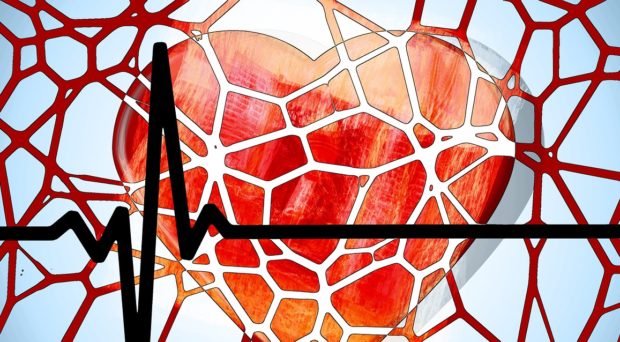
In search of ways to improve cardiac surgery outcomes (and other medical interventions in general), intriguing findings from the field of placebo research have come into focus over the past years. Placebo effects have been shown for nearly all fields of medicine, including highly invasive interventions such as cardiac surgery. In this sense, placebo responses represent the best investigated mechanism contributing to medical treatment success. However, the potential of capitalizing these effects to improve outcome has not been brought into action.
Coronary heart disease is one of the world’s leading causes of morbidity, disability and mortality.
Over the past decades, surgery to treat coronary heart disease has substantially improved, yet many patients do not benefit the way surgeons would predict from a medical point of view. Improving interventions could improve the health of millions, as coronary heart disease is one of the world’s leading causes of morbidity, disability and mortality. While from a surgeon’s point of view, treatment outcome could be frequently favourable; a successful post-surgery development is often hampered by treatment-unspecific effects.
Placebo effects, in its broader definition, refer to subjective and physiologic changes due to non-specific treatment components. Patient’s expectations are a major mechanism that causes placebo effects. These effects are not only substantial for patient-reported outcomes such as pain or depression, but they were also demonstrated for biological parameters such as immune responses, cardiovascular parameters, dopamine release, EEG and fMRI. But could outcome of coronary artery bypass graft surgery (CABG) be improved by ‘simply’ optimizing patients’ pre-surgery expectations?
The PSY-HEART trial
In our prospective three-arm randomized clinical trial with 6 month follow-up, 124 patients scheduled for CABG surgery were randomized to either a brief psychological pre-surgery intervention to optimize outcome expectations (EXPECT); or a psychological control intervention focusing on emotional support and general advice, but not on expectations (SUPPORT); or to standard medical care (SMC). Interventions were kept as brief as possible to be feasible within the heart surgery environment, they encompassed two in-person sessions and three short phone calls.
EXPECT aimed to help patients to develop helpful yet realistic outcome expectations about their life after surgery, and to enhance personal control expectations by showing ways how to cope with occurring unpleasant symptoms. The manualized intervention used cognitive-behavioural techniques, such as psychoeducation, visualization, and written goal action plans. Primary outcome was disability 6 months after surgery. Secondary outcomes comprised further clinical and immunological variables.
EXPECT aimed to help patients to develop helpful yet realistic outcome expectations about their life after surgery.
Six months after surgery, patients receiving the EXPECT intervention showed significantly larger improvements in health-related disability than patients receiving SMC. We found a trend in favour of the EXPECT group compared to the nonspecific SUPPORT group. Moreover, only the EXPECT group reported improved mental quality of life after surgery and greater fitness for work.
The pre-surgery interventions also led to changes in immune responses: Both interventions induced less pronounced increases in pro-inflammatory cytokine concentrations (interleukin 8) after surgery compared to changes in SMC patients. Additionally, EXPECT patients had the lowest interleukin 6 levels 6 months after surgery. Acceptability and satisfaction were very high for both pre-surgery interventions; no adverse effects were attributed to them.
The fact that improvements were mainly specific for the EXPECT intervention underpins the importance of specifically targeting patients’ expectations beyond general supportive therapeutic attention. However, empathic interactions and supportive therapeutic relationship are also considered effective placebo mechanisms, which are reflected in improvements in the SUPPORT group.
Of note for the clinical routine, our brief intervention was feasible and can be easily implemented within the cardiac surgery environment.
Enhance placebo mechanisms – potential for many medical treatments?
Altogether, our finding indicates that optimizing patients’ pre-surgery expectations helps to improve long-term health after CABG. This has important implications: Beyond striving for advancing the treatment itself, we should focus on the context around the mere surgical procedure. By optimizing the context, patients can benefit more from the same surgery. Placebo mechanisms such as expectations can be utilized to improve outcome after treatment. If this is true for such a highly invasive intervention like CABG, it might also be a promising approach for many other treatments. Medication prescriptions, medical treatments and surgeries could be substantially improved by this approach. We believe that it is time to broaden the focus of medical interventions.
They are acknowledging the amazing power of the placebo response and suggesting it should be used to enhance the success rate of their surgery. What they fail to acknowledge is that any success they already attribute to their surgery may also be down to the patient’s placebo response. I’m fairly certain the same could also be said for most of their drugs. All fortunately for them still unprovable since we are dealing with the unknowable, we cannot and are unlikely ever to be able to quantify the influence of the human mind on the healing process. It’s becoming an even bigger elephant in the room that pesky placebo effect!